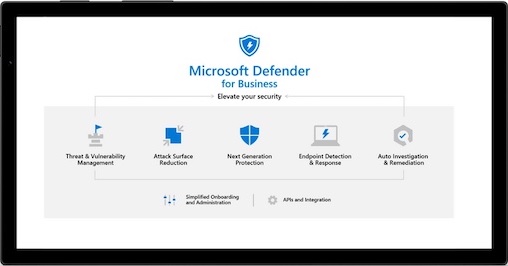Beware Of These Security Threats While In Kenya
Kenya, known for its beautiful landscapes and vibrant culture, is a popular travel destination. However, like many other countries, it faces certain security threats that travelers should be aware of. These threats vary from cyberattacks to physical risks in specific regions. Staying informed about these potential dangers can help travelers take the necessary precautions to ensure their safety. This piece highlights some of the most common security threats faced by travellers in Kenya.
Terrorism and militancy risks
Terrorism remains one of the significant security threats in certain areas of Kenya. The country has experienced attacks from militant groups such as Al-Shabaab, particularly in border regions close to Somalia. Popular tourist destinations, such as Nairobi and Mombasa, have occasionally been targeted. Though security forces are active, travelers should remain vigilant, particularly near government buildings, airports, and shopping centers. Traveling to less-known rural areas or near the Somali border may carry a higher risk, requiring heightened awareness.
Cybersecurity threats
Cyberattacks are a growing concern in Kenya, with increasing incidents of hacking, identity theft, and online scams. Public Wi-Fi networks in cafes, hotels, and airports are especially vulnerable to cybercriminal activities. Hackers can intercept communications, steal sensitive data, and gain unauthorized access to financial accounts. Travelers should avoid logging into personal accounts using unsecured Wi-Fi networks. Using a virtual private network can add an additional layer of protection while using public networks in Kenya.
Street crime and petty theft
Street crime is a concern in larger cities like Nairobi and Mombasa. Petty theft, such as pickpocketing and bag-snatching, is common in crowded areas, including markets, public transport, and tourist spots. While violent crime rates are lower in comparison, travelers should still remain cautious when walking in busy areas. Avoid displaying valuables such as expensive jewelry or electronics in public. Always be aware of your surroundings and avoid walking alone at night in unfamiliar or poorly lit areas.
Carjacking and road safety risks
Carjacking is a security concern, particularly when traveling in remote or less-patrolled areas of Kenya. Road safety can also be a challenge due to poorly maintained infrastructure and unpredictable driving behaviors. In urban centers, traffic congestion may attract opportunistic criminals looking to steal from vehicles. It is recommended to hire a local driver or use trusted taxi services, especially at night, to mitigate these risks. When renting a car, ensure it has proper security features like working locks and alarms.
Scams targeting tourists
Scammers often target tourists in Kenya, particularly in popular tourist areas. Common scams include overcharging for goods or services, fake tour guides, and fraudulent money exchange offers. In some cases, individuals may pose as police officers or government officials to request bribes. To protect yourself, always verify the credentials of any tour guides or service providers. Stick to well-known vendors and avoid accepting unsolicited offers from strangers.
Wildlife and natural disasters
While Kenya’s wildlife and natural landscapes attract many tourists, these environments can also pose risks. Wildlife attacks, though rare, can happen, especially in safari parks. Travelers should always adhere to safety instructions provided by guides in protected areas. Additionally, Kenya is subject to natural disasters such as floods and droughts, which may cause disruptions to travel plans or pose direct risks to health and safety. Keeping up to date with weather warnings and local advisories is crucial for staying safe.
Health and medical security risks
Health-related security threats in Kenya are a concern for travelers, particularly those coming from countries with different sanitation standards. Malaria is common in many regions, particularly in rural areas, and travelers are advised to take preventive medication. Additionally, Kenya has a range of diseases such as cholera, dengue fever, and typhoid, particularly in areas with poor sanitation. Drink bottled or purified water and avoid street food to minimise the risk of illness. Having comprehensive travel insurance and access to medical facilities is also crucial.
Corruption and bribery
Corruption is a well-documented issue in Kenya, particularly in government institutions and law enforcement. In some cases, officials may ask for bribes in exchange for services, such as clearing customs or providing permits. While this may not always result in immediate harm, it can cause stress and disrupt travel plans. Travelers should familiarize themselves with the typical procedures and be cautious if asked for unofficial payments. Carrying a reasonable amount of cash for small expenses may reduce the likelihood of being asked for bribes.
Security concerns in border areas
Traveling near the borders, particularly the Somali border, can present specific security risks. This region has been known to experience cross-border militancy and conflict. Foreign nationals are advised to avoid traveling in these areas unless accompanied by local authorities or security personnel. The government often imposes travel restrictions or advisories on border regions for security reasons. Always check the latest travel advisories from your embassy and the local authorities when planning trips to these areas.
Lack of reliable emergency services
In some parts of Kenya, emergency services may be unreliable or difficult to access, especially in remote regions. Ambulance services and hospitals may not be equipped with the necessary resources to respond to serious medical emergencies. In case of an emergency, it may be challenging to get timely assistance, particularly in rural or isolated locations. Travellers should have a clear understanding of local medical facilities, and it is advisable to have access to a reliable network of emergency contacts.
Risks from political instability
Political instability in Kenya can create significant security risks, particularly during election periods. While Kenya generally experiences stable governance, protests, strikes, or demonstrations can erupt, particularly in major cities. These events may lead to violence, roadblocks, and disruptions to travel plans. Travelers should stay informed of local news and avoid political gatherings or protests. If unrest is anticipated, it may be best to limit travel to high-risk areas and stay in secure accommodations.
Navigating the informal economy
Kenya has a large informal economy, with many businesses and individuals working outside the regulatory framework. While this provides flexibility and opportunities for some, it also introduces risks for travelers. Engaging in informal trade or transactions can lead to misunderstandings, scams, or legal complications. Travelers should focus on conducting business through established and legal channels to avoid falling victim to dishonest practices.
Staying informed and prepared for security threats
Staying informed is the most effective way to avoid security threats in Kenya. Travelers should monitor local news, government travel advisories, and social media for updates on security risks. It is also wise to register with your embassy or consulate upon arrival to receive alerts about any emerging threats. Having a local contact, such as a trusted guide or hotel staff, can also be a useful resource in times of need.
Security on safari and wildlife tours
Kenya’s national parks and wildlife reserves are popular with tourists seeking safari experiences. While these areas are generally safe, certain risks come with interacting with wildlife. Travelers must always adhere to safety instructions from tour guides and park rangers. There are also risks of injury from rough terrain or exposure to extreme weather conditions. Ensuring that all safety protocols are followed can significantly reduce the risk of accidents or injuries during safaris.
Safeguarding personal belongings
Keeping personal belongings secure is another way to stay safe in Kenya. As in many other countries, theft is a concern, particularly in crowded areas like markets or public transport. Travelers should store valuables in secure places, such as hotel safes or concealed pockets, and avoid displaying expensive items like jewelry or electronics. Using a money belt or anti-theft backpack can also help protect against pickpockets.
Staying secure in Kenya
Despite the security threats present, Kenya remains a popular destination for tourists. Being informed, staying alert, and taking proactive steps can help travelers mitigate risks and ensure a safe experience. Travelers should familiarize themselves with the local security environment, adhere to safety guidelines, and take common-sense precautions. With proper preparation, travellers can enjoy all that Kenya has to offer while minimising their exposure to potential threats.
Traveling securely
By understanding the security threats in Kenya and taking appropriate precautions, travelers can significantly reduce their risks. Staying informed, adhering to safety guidelines, and using trusted services are essential for a secure experience.





